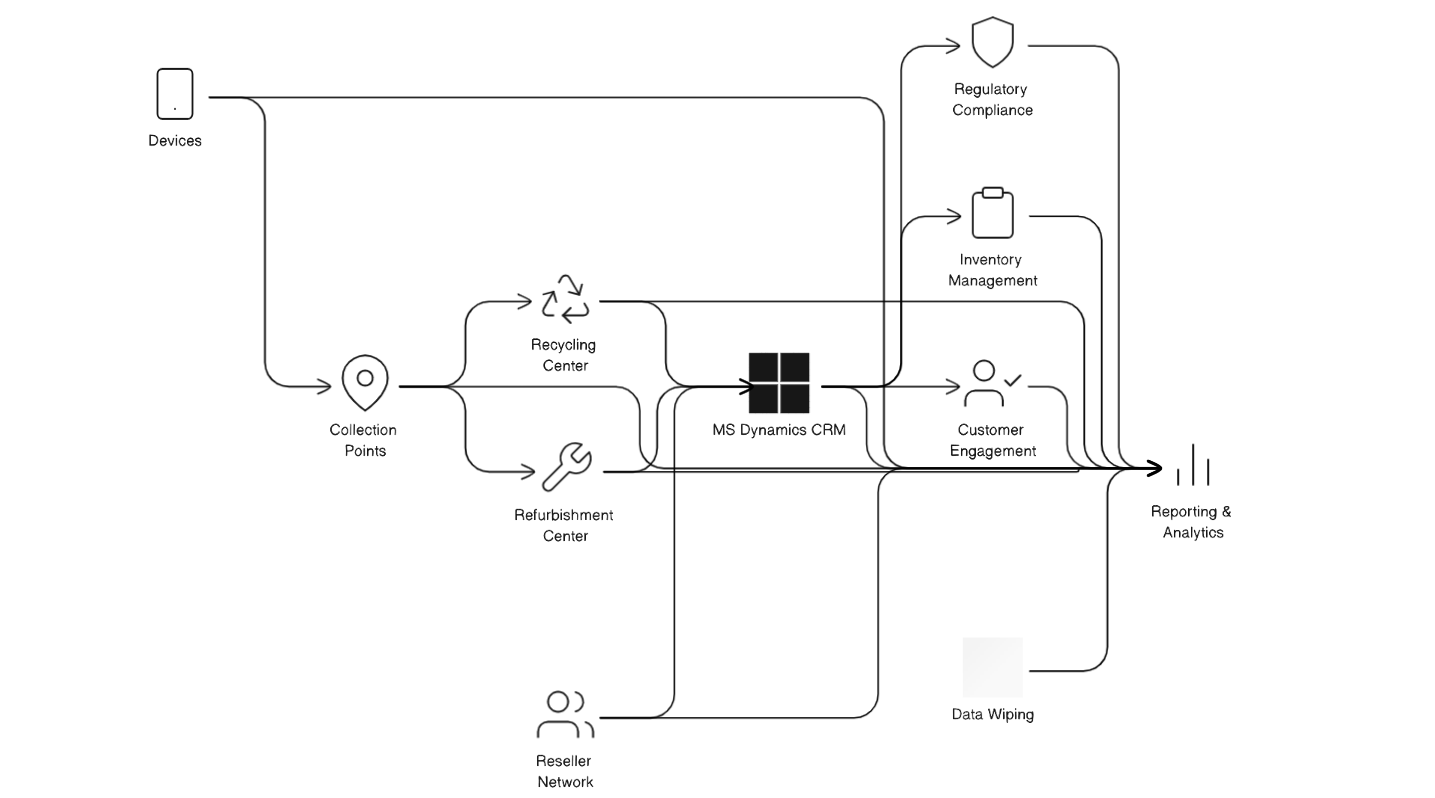Water Management Specialists
Water management specialists can leverage Microsoft Dynamics CRM and Power Platform to significantly enhance their operations in various areas:
1. Holistic Customer Data Management:
Problem: Fragmented customer data leads to poor communication and inadequate service.
Solution: Use Microsoft Dynamics CRM to centralize customer interactions, preferences, and service history.
Use Case: Customer Profile Management
1. A customer logs into the customer portal created using Power Apps.
2. They update their contact information, communication preferences, and service history.
3. Dynamics CRM automatically updates the customer profile with the new data.
2. Service Request Management:
Problem: Manual service request handling results in delays and confusion.
Solution: Utilize Power Apps for service request submission and Power Automate for streamlined routing.
Use Case: Self-Service Service Request Submission
1. A customer accesses the service request portal via Power Apps.
2. They enter the nature of the issue, location, and relevant details.
3. Power Automate triggers an approval workflow to assign the request to the appropriate team.
3. Scheduling and Dispatching:
Problem: Inefficient scheduling leads to delayed response times.
Solution: Dynamics CRM and Power Apps can enable real-time dispatching.
Use Case: Dynamic Technician Assignment
1. A service request is submitted through the portal.
2. Power Automate identifies the nearest available technician based on GPS location data.
3. The technician receives a notification via the mobile app developed using Power Apps.
4. Service Contract Management:
Problem: Managing multiple service contracts manually is error-prone.
Solution: Dynamics CRM can streamline service contract tracking and renewal.
Use Case: Automated Contract Renewal
1. A service contract's expiration date is approaching.
2. Power Automate sends automated renewal reminders to both the customer and the internal team.
3. Upon confirmation, Dynamics CRM updates the contract's renewal status.
5. Asset and Inventory Management:
Problem: Inaccurate asset and inventory data leads to inefficiencies.
Solution: Dynamics CRM can manage asset details and inventory levels.
Use Case: Asset Maintenance Tracking
1. A technician performs maintenance on a water pump.
2. They update the maintenance details, date, and any replaced parts in Dynamics CRM.
3. The updated data is accessible for future reference and reporting.
6. Analytics and Reporting:
Problem: Lack of insights hampers decision-making.
Solution: Power BI can visualize data from Dynamics CRM for better insights.
Use Case: Performance Analytics Dashboard
1. Power BI creates a dashboard displaying key performance metrics.
2. It presents data on response times, completed service requests, asset uptime, and customer satisfaction.
3. Decision-makers use the dashboard to assess overall performance.
7. Mobile Access:
Problem: Field technicians lack real-time access to information.
Solution: Power Apps develops a mobile app for technicians.
Use Case: Mobile Service App
1. A technician receives a work order via the mobile app.
2. They access customer information, asset history, and GPS navigation.
3. After completing the service, they update the work order status, hours spent, and parts used using the app.
8. Integration with Other Systems:
Problem: Disconnected systems lead to data duplication.
Solution: Power Platform integrates Dynamics CRM with other tools.
Use Case: Integration with GIS System
1. GIS system records water network data.
2. Power Automate transfers relevant data to Dynamics CRM for asset management.
3. Technicians access GIS data from within the Dynamics CRM interface.
These step-by-step use cases illustrate how Microsoft Dynamics CRM and Power Platform can effectively address real-time challenges in water management operations, ultimately leading to enhanced efficiency, improved customer service, and informed decision-making.
